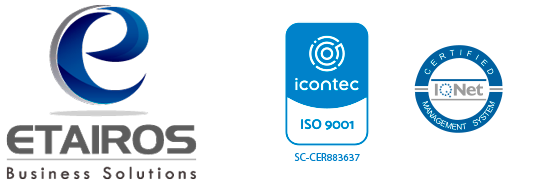
The term emotional intelligence appears in the psychological literature in the year 1990, in a writing by American psychologists Peter Salovey and John Mayer. However, Daniel Goleman was the publication of the book Emotional Intelligence (1995) who popularized it quickly.
Emotional intelligence has to do with a person’s ability to recognize, understand and manage their emotions and those of others. Emotions can help us solve problems and guide our relationships, both personally and professionally.
It is important to highlight that the person who has a high level of emotional intelligence is a person who thanks to it achieves the following objectives in their relationship with others:
- the people around him/her feel comfortable with him/her and do not feel any kind of negative feeling.
- Radiates confidence in case any advice is needed, either personally or professionally.
- Is able to recognize and handle all the negative emotions that may be experienced.
- View criticism as something positive, as it analyzes and learns from them.
- Is someone who precisely because of having that emotional intelligence and know how to conveniently channel negative emotions, has a greater capacity to be happy.
- Has the necessary qualities to face adversities and setbacks
Why is emotional intelligence important in business?
Emotional intelligence is a very important aspect within the company, since as Daniel Goleman affirmed, “The rules that govern the world of work are changing. Nowadays we are not only judged by how smart we can be neither by our training and experience, but also by the way we relate to ourselves and others”
A person who is attuned to their own emotions is much more likely to be able to understand the emotions that affect the attitudes and behaviors of others. This is why emotional intelligence is so valuable to managers. It is very important that managers who want to be seen as leaders remember that actions speak louder than words.
Managers, entrepreneurs, leaders can not afford to lose sight of the fact that their employees are people, with real lives and emotions that impact how they think, feel and act.
The benefits and advantages of developing emotional intelligence in the company
- Leaders understand and motivate their team better.
- There is a better work climate
- There is better communication in the company
- Better perception of oneself as a person and at work
- The processes of change and improvement are more bearable
- Workers are more responsible
- Increase efficiency and effectiveness of people and equipment at work
- Leadership is reinforced
The emotional intelligence in the company must begin with the person, for the personal development in which they try to know oneself and seek continuous improvement. In this way, the improvement will start from oneself to face the others and the company.
Lately there are already many companies that are investing in training their employees in emotional intelligence, because they have realized that the key to success, key sales, is the extent to which company employees know and control their emotions and know how to recognize the feelings of customers.

